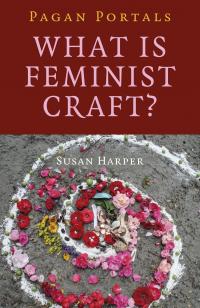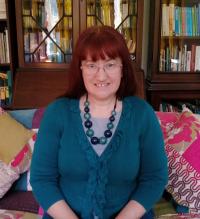
My parents began taking me to church as soon as I was old enough to go, which is to say, from the time of my christening onward. I grew up in the Evangelical Lutheran Church of America, which was somewhat more relaxed toward Communion than the Catholics but still had a lot of rules to follow. From a young age, I tossed these rules out the stained glass window. At two years old, when the bread and wine were being passed around the congregation, I simply reached over and helped myself to a serving of both. This apparently shocked most of the congregation except for the pastor, who responded, “She’s clearly ready to partake, so let her!” Eventually, parents began to complain, and so at five years old, I attended a Communion class.
Our pastor’s name was Bowser, which I found hilarious due to the Legend of Zelda villain of the same name. I remember him as a comforting and sane presence in my otherwise chaotic life. Our church had an altar and lectern that were raised above the people by several steps, but I remember that the pastor had a habit of coming down from the lectern and walking through the congregation while he talked. He loved my passion for hymn-singing and my childishly literal pronunciations of difficult words such as “righteousness”.
The church was historic, built in 1752, and it was a small, rectangular building with an old-fashioned belltower. On sunny days, the interior was mottled with multicolored light from the stained-glass windows. I wonder if it contributed to my announcement in elementary school that my favorite color was “rainbow”.
As a child, I was never particularly worried about Lutheran sacraments or theology. I preferred to focus on the stories I saw in the stained glass windows and the experience of the sacred I felt every Sunday when the people sang together. The sacred was also present outside, when I climbed the juniper on the hill and smelled its sharp tang, or when a blizzard closed the roads and piled snow higher than our doors. I knew that nature held immense power.
When I was older, we moved across the country and switched denominations several times, finally landing on Presbyterian. I remember being angry that the Presbyterians had dropped the number of sacraments from seven to two. I thought that we should head in the direction of things being more sacred rather than less. Now that I look it up, it seems that the Lutherans only had two or three sacraments, and I had mixed up non-sacramental rites. I can be forgiven my confusion, especially since one Lutheran church I attended used to visit the nearby Catholic church (which did have seven sacraments) for services and vice versa, separating again when it was time for Communion. This grassroots effort to focus on our shared experiences of the sacred has always stayed with me, and it led me to (somewhat shockingly) declare in my Confirmation statement that I believed God loved all people of all religions.
Unfortunately, in my teenage years, I began to see huge disparities between the sacred I knew in music and nature and the dogma of the church. I had a passion for Biblical analysis and history, but I eventually reached a point in Sunday school where no one knew the answers to my questions. I began to see troubling disparities in the Bible’s treatment of women and out-groups, and it reached a point where I could no longer reconcile the text and the actions of Christians with my experience with the sacred.
My transition to paganism happened slowly, if it ever happened at all. Sometimes, I think that I’ve always been pagan in my relationship with the world and was simply trying to clothe my experiences in the religion I was born into. Music played a large role here. My mother was an opera singer, so I grew up surrounded by music. I especially remember loving the medieval and Renaissance carols she played every December. It was the only time of year that I remember religion placing a woman at the center of the religious drama for a positive reason. However, later church teachings reduced Mary’s role to that of a servile woman who obeys the commands of a male god delivered through a male messenger. To that end, I have come to believe that anthropomorphic deities are simply humans putting a familiar face on those experiences which are both immanent and transcendent at the same time. Those faces can serve to reinforce a power structure, but they can also tell stories about the ability of a human being to be more than they currently are.
One of the most important pagan concepts I have encountered is the Celtic notion that the land is a sovereign goddess, often portrayed as a mother or a lover. I did not have a good relationship with my mother, and I never received much in the way of nurturing or feeling that home was a safe place. As an adult, I have unconsciously looked for this relationship in other human beings, which has led to a string of somewhat destructive friendships and love interests. I think that a much more responsible way to go about healing myself is to develop a better relationship with the land. I can pour all my needs into the Earth without overwhelming it, and there is no danger of the Earth possessing an ulterior motive in its relationship to me.
There was a time, earlier in my twenties, when I wanted to discover or pull together a comprehensive cosmology that would explain my place in the universe as well as humanity’s relationship to the sacred. As I approach thirty, I am no longer quite as concerned with precise, dogmatic definitions. I like the idea that we are all shapers who are shaped by our own creative process, for it seems to imply that every shaper is held accountable for their actions by the same process which gave rise to those actions. It echoes the sentiment that Qui-Gon Jinn expresses to Anakin Skywalker in “The Phantom Menace”: “Your focus determines your reality.” I like to paraphrase this as, “What you feed, you become.” If I focus my creative energy on destructive actions, I am likely to become more destructive, but if I focus on transformational actions, I am likely to become transformed myself. This idea also encourages human community because, according to this philosophy, helping others also helps yourself.
People tell me that I’m still young and just at the beginning of my journey. That being the case, I look forward to continuing to learn from those who have come before and adding my experiences to the well from which our mythologies arise.
Categories:
0 comments on this article






